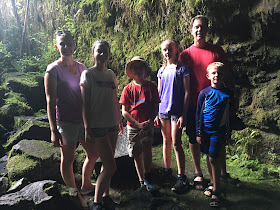As I read Richard Foster’s “Streams of Living Water” and his description of the “contemplative
life” (living life with the steady gaze of the soul upon the God who loves us),
I find that I can relate to the movements through a prayerful life that he
describes so very much.
I am going to paraphrase Foster’s second chapter here: but he describes the fundamental movements of
a Christian living their life with a steady gaze upon God, or the contemplative
life. These fundamental movements flow through
love, peace, delight, emptiness, fire, wisdom, and transformation. Oh, how true!
As we first come to think upon God and cast our gaze on Him,
we sense a delicate but deepening love, a love that in the beginning is so
quiet and unobtrusive that it is hardly even perceptible. But little by little, this love comes, high
and low, hot and cold, but in time always growing deeper, stronger, and more
steady.
As love grows, in slips a peace that really cannot be
analyzed – truly it is a “peace that passes understanding” (Phil 4:7). This peace is not due to the absence of
conflict or worry or grief, but rather due to a Presence with us in the chaos. And in time this quiet peace wins over the
chatter and clatter of our noisy, restless, or hurting hearts.
Love and peace are then followed by delight – a deep
joy. A playfulness even. Or a childlikeness. This delight is not uninterrupted, it will
ebb and flow, but it is an exquisite delight often mingled with a painful
yearning for more. And that yearning
brings us to an opposing, almost contradictory movement – emptiness. The delight of finding God’s love and peace
leads us to realize it is not a complete finding. We have a “dissatisfied satisfaction” or as
John of the Cross calls it, “a living thirst… the urgent longing of love.”
The awareness of the incomplete feels like emptiness, and
can also have a deep darkness as we realize we are experiencing a God who feels
hidden or veiled from us. But the
emptiness, the darkness, the grief, the dryness - these are all forms of prayer
themselves too. While delight is the
feasting of the Lord, emptiness is our fasting – and both are needed for the growth
of the soul.
As we pass through seasons of delight and emptiness, we eventually
experience fire. Our varying experiences
with God intensify our love for Him, becoming a steady flaming fire. And we come to the point of feeling and
welcoming God’s fire because we know it is the purifying fire a love that burns
away the dross – the stubbornness, hate, self-promotion, and self-sins of our
life. Fire leaves fertile ground for
love to be planted and flower. As God’s
love blossoms, wisdom appears.
The knowing and inflowing of God himself arrives and we “filled
with the knowledge of the glory of the Lord” (Hab. 2:14). We know as we are known, as we are privileged
to listen in and participate in the self-communication of the Trinity.
God is using this process to slowly capture first our hearts
and wills, then our mind and imagination.
The result is the transformation of our entire personality into the
likeness of Christ as we take on his habits, feelings, hopes, faith, and His
love. What a beautiful process.

















